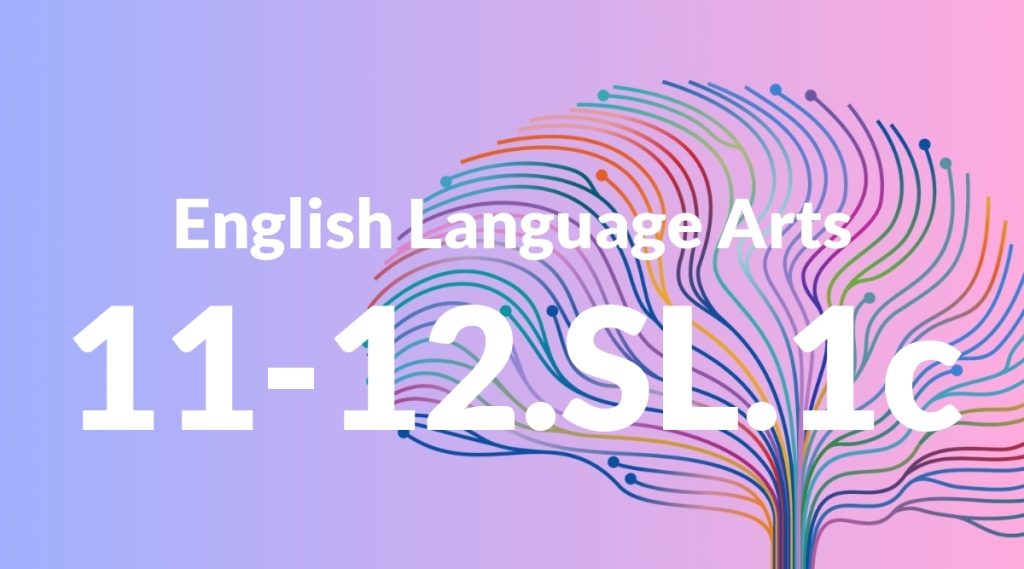Standard: 11-12.SL.1 – Initiate and participate effectively in a range of collaborative discussions (one-on-one, in groups, and teacher-led) with diverse partners on grades 11-12 topics, texts, and issues, building on others’ ideas and expressing their own clearly and persuasively.
Grade level: Grade 11-12
Subject: English Language Arts
Domain: Speaking & Listening
Teacher Overview
This standard emphasizes the importance of effective participation in various collaborative discussions. It is crucial for students to engage in meaningful dialogue, build on others’ ideas, and express their own thoughts clearly and persuasively. Mastery of this standard prepares students for real-world communication scenarios and enhances their critical thinking and interpersonal skills. Students should have basic skills in active listening, note-taking, and previous experience in group discussions. They should also be familiar with constructing clear and coherent arguments and have a foundational understanding of the topics being discussed.
After mastering this standard, students will develop advanced communication skills, including the ability to lead discussions, synthesize diverse viewpoints, and present arguments persuasively. They will also enhance their critical thinking and collaborative problem-solving abilities.
Common Misconception 1
A common misconception is that participating in discussions only involves speaking. This is incorrect because effective participation also requires active listening and thoughtful responses to others’ ideas.
Intervention 1
To address this misconception, incorporate active listening exercises into classroom activities. Use role-playing scenarios where students must listen and respond to their peers’ contributions, emphasizing the value of listening in effective communication.
Common Misconception 2
Another misconception is that students’ ideas must always be agreed upon by others. This is incorrect as diverse perspectives enrich discussions and promote critical thinking.
Intervention 2
Encourage respectful disagreement and teach students how to build on differing viewpoints. Use activities like structured debates where students must argue from different perspectives, highlighting the importance of diverse opinions.
Prerequisite Knowledge
Students should have basic skills in active listening, note-taking, and previous experience in group discussions. They should also be familiar with constructing clear and coherent arguments and have a foundational understanding of the topics being discussed.
Subsequent Knowledge
Students will develop advanced communication skills, including the ability to lead discussions, synthesize diverse viewpoints, and present arguments persuasively. They will also enhance their critical thinking and collaborative problem-solving abilities.
Instructional Activities
- Classroom debates on current events
- Group projects analyzing literature
- Peer review sessions for essays
- Mock interviews and presentations
- Community discussions or forums
- Book club meetings
- Team-building activities
- Role-playing exercises




